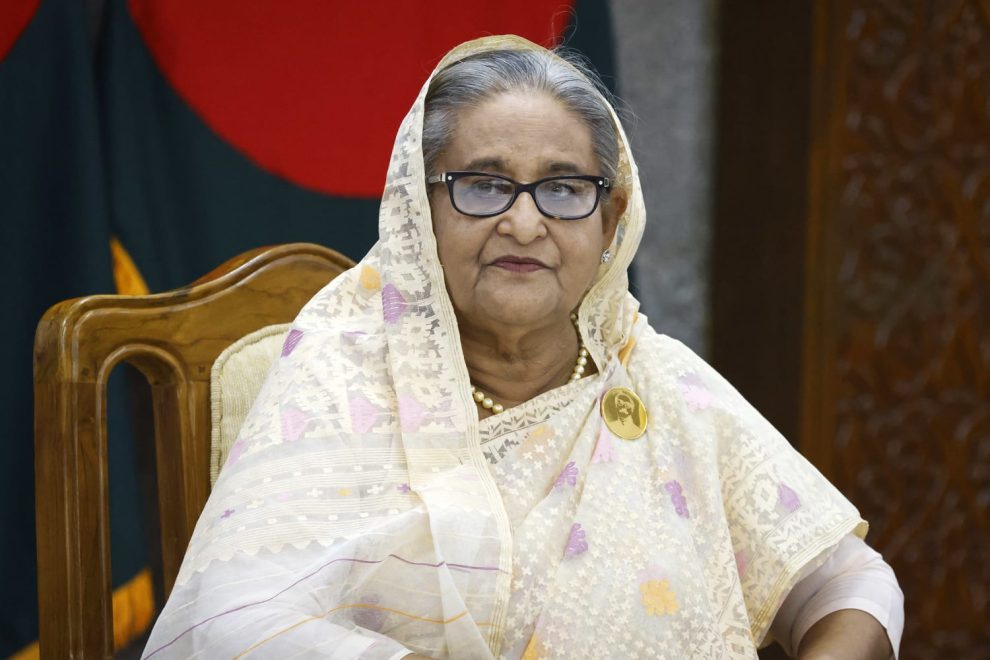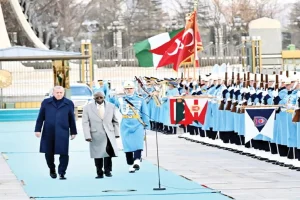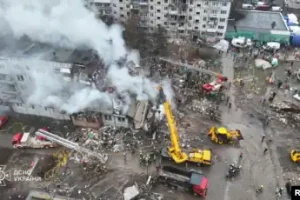Dhaka – Bangladesh’s former Prime Minister Sheikh Hasina has been sentenced to death for her role in a violent crackdown on student-led protests last year that ultimately led to her ousting from power.
The country’s domestic war crimes court, the International Crimes Tribunal (ICT), found 78-year-old Hasina guilty of allowing lethal force to be used against demonstrators, during unrest that prosecutors allege resulted in the deaths of approximately 1,400 people.
Hasina, who has been living in exile in India since she was forced from office in July 2024, was tried in absentia.
The Verdict and Diplomatic Challenge
Judge Golam Mortuza Mozumder announced the verdict, finding Hasina guilty on three counts, including incitement, ordering killings, and failing to prevent atrocities during the uprising.
“We have decided to inflict her with only one sentence – that is, sentence of death,” the judge stated.
The sentence is a pivotal moment that appears to vindicate the widespread protests, which began with anger over job quotas but rapidly morphed into a broader anti-government movement against years of alleged repression under her 15-year rule.
However, the ruling poses a diplomatic complication:
- Dhaka has formally requested Hasina’s extradition from India.
- New Delhi has so far shown no willingness to comply, meaning the death sentence is unlikely to be carried out soon.
Hasina Denies Charges
Sheikh Hasina has consistently denied all charges, labelling the trial “biased and politically motivated.”
In a five-page statement released on Monday, she reacted to the verdict by claiming the death penalty was the interim government’s method of “nullifying [her party] the Awami League as a political force.”
She defended her government’s human rights record and insisted: “I am not afraid to face my accusers in a proper tribunal where the evidence can be weighed and tested fairly.” Last week, her lawyers filed an urgent appeal with the UN, citing serious concerns over fair trial procedures at the ICT.
The interim government, currently led by Nobel Peace Prize laureate Muhammad Yunus, called the sentence “historic” and “profound” but urged for calm amid high emotions following the outcome.
UN Findings and Public Reaction
The student-led uprising in 2024 saw Hasina’s government increasingly accused of attempting to silence opposition through politically-motivated arrests, disappearances, and extra-judicial killings.
In February, UN human rights investigators documented cases of point-blank shooting, deliberate maiming, arbitrary arrests, and torture of protesters, concluding that the estimated 1,400 deaths could amount to “crimes against humanity.” Leaked audio verified by BBC Eye earlier this year suggested Hasina had authorised the use of “lethal weapons” in July 2024; this audio was later played in court.
The UN Human Rights Office welcomed the verdict as an “important moment for victims,” but expressed regret over the “imposition of the death penalty, which we oppose in all circumstances.”
Security was tightened in the capital, Dhaka, ahead of the verdict, with many of Hasina’s critics gathering to cheer the judgement. The city has seen a recent spike in unrest, including reports of bomb explosions and vehicles being set alight in the days leading up to the ruling.
Family members of those killed expressed relief, with one widow stating she wanted the sentence “carried out before the election” so that families could “find peace in their hearts.”
The interim government, which banned Hasina’s Awami League party in May, is preparing for a parliamentary election scheduled for February 2026.





Add Comment